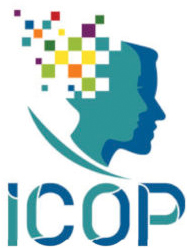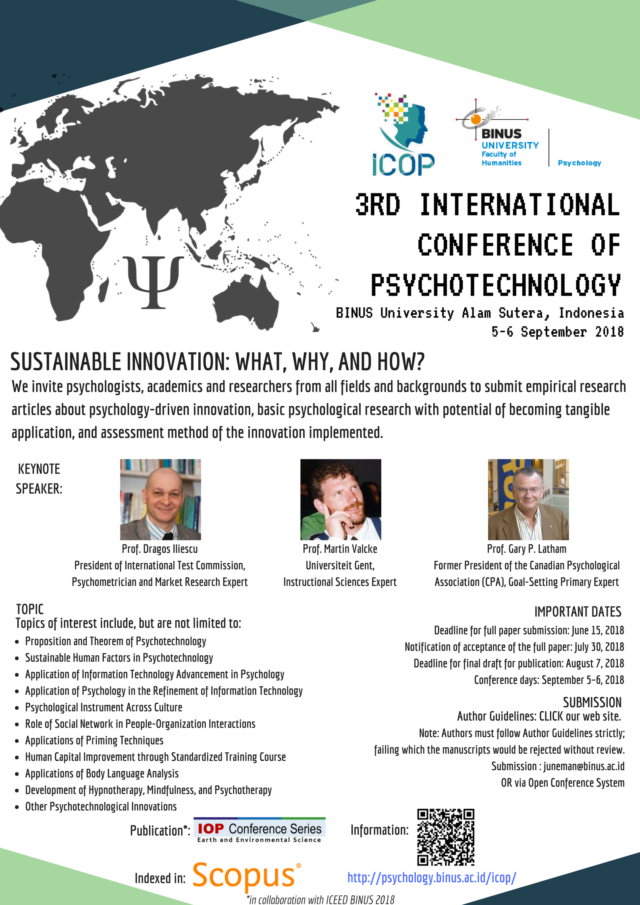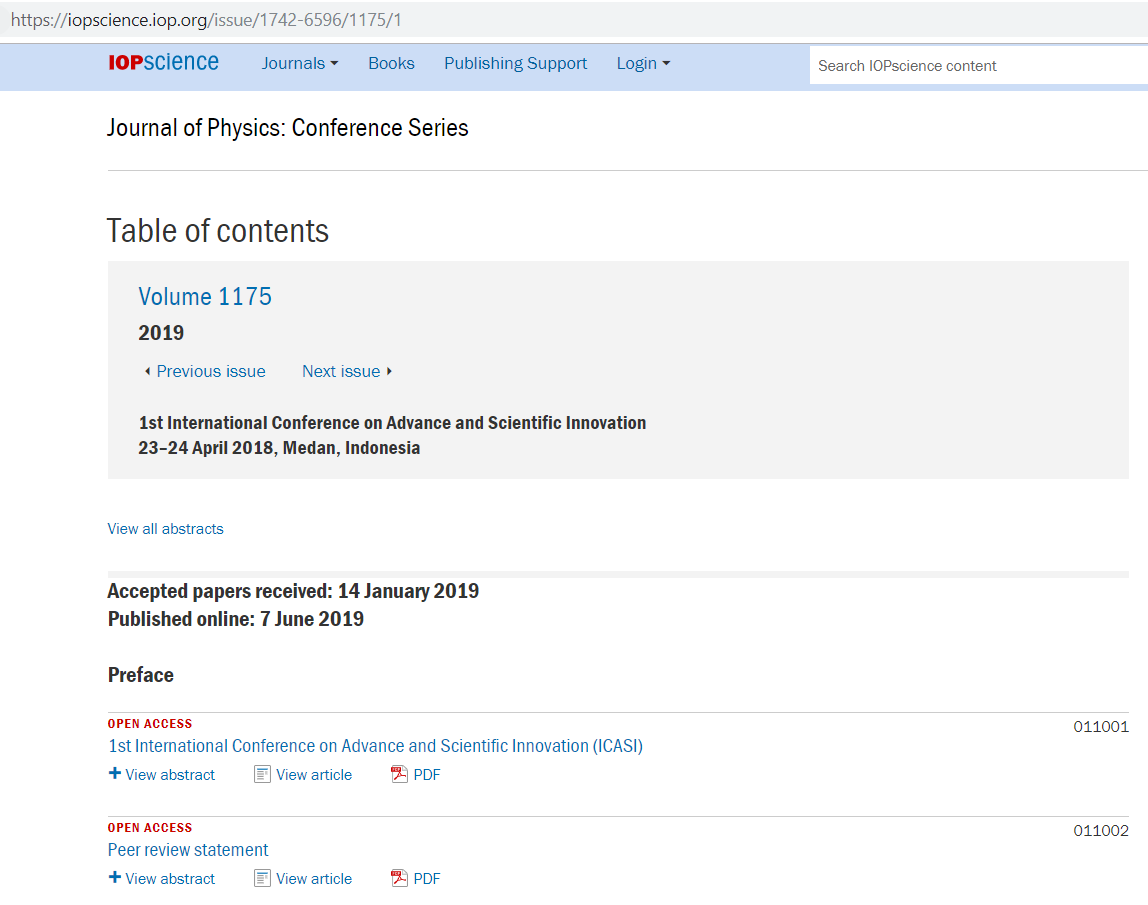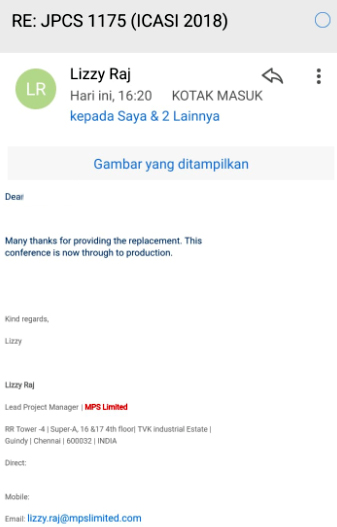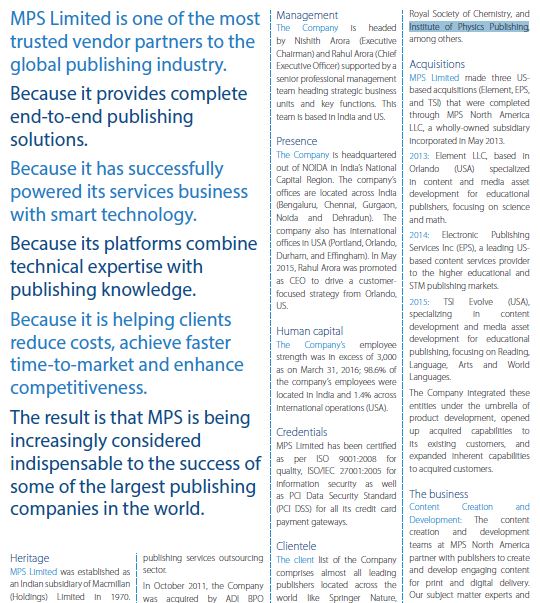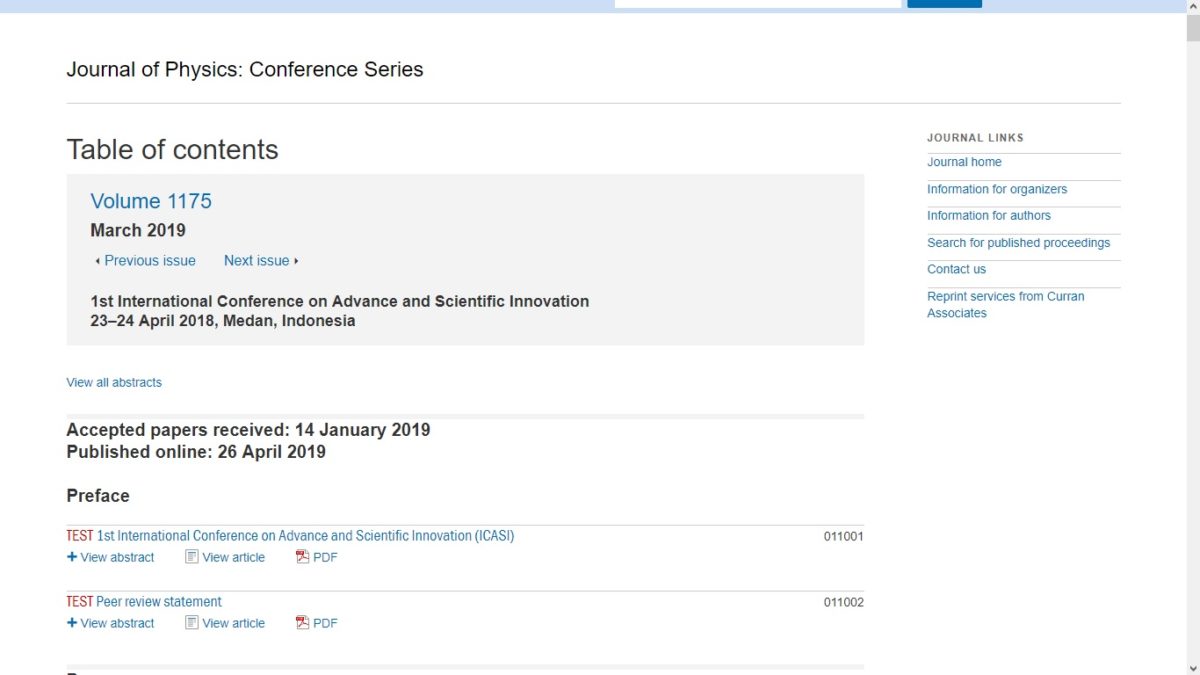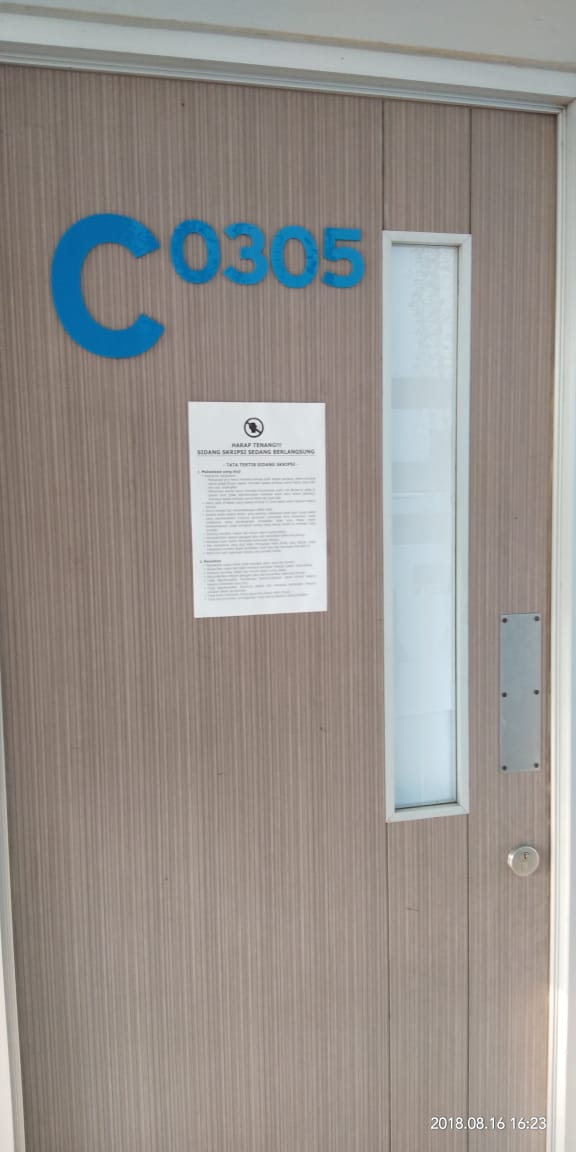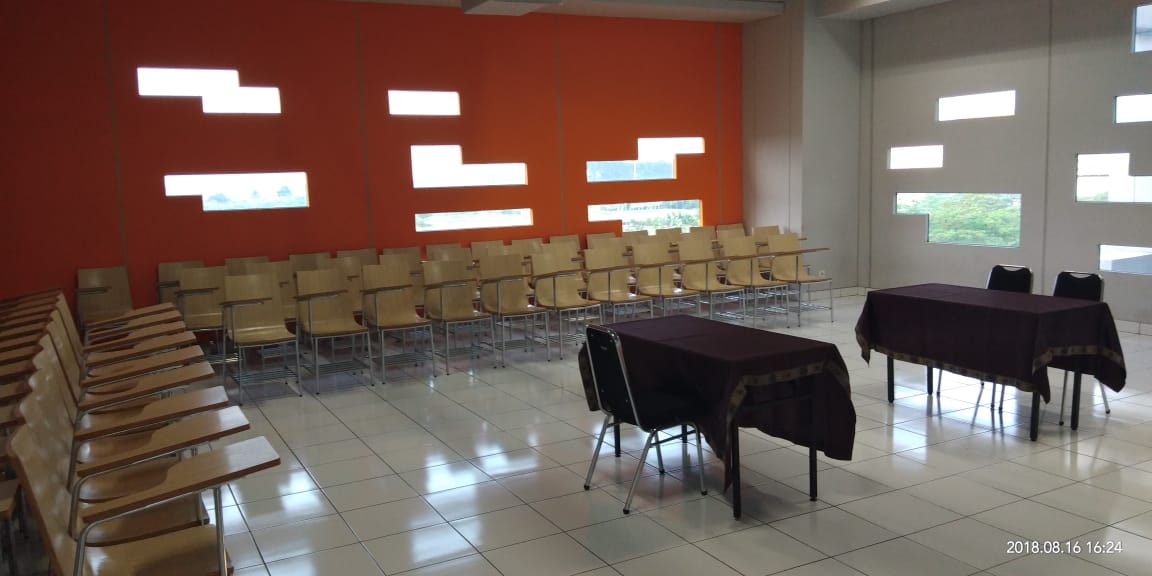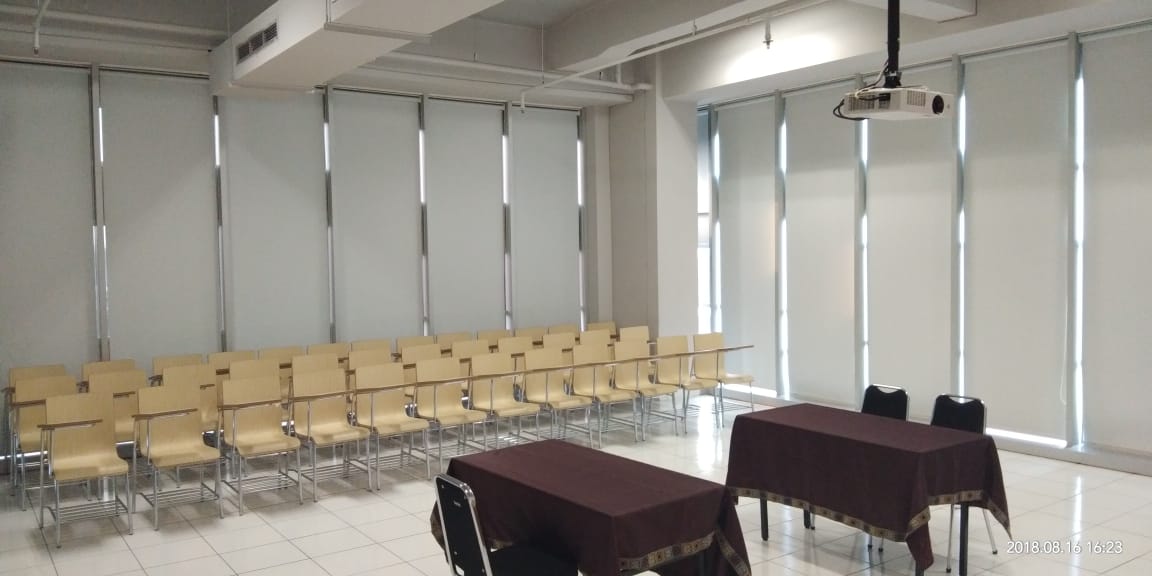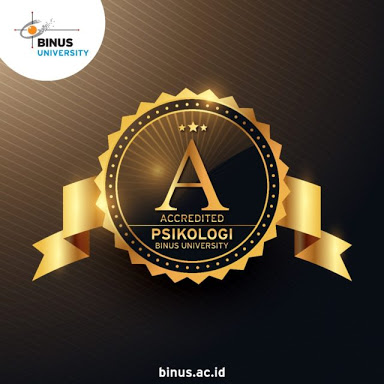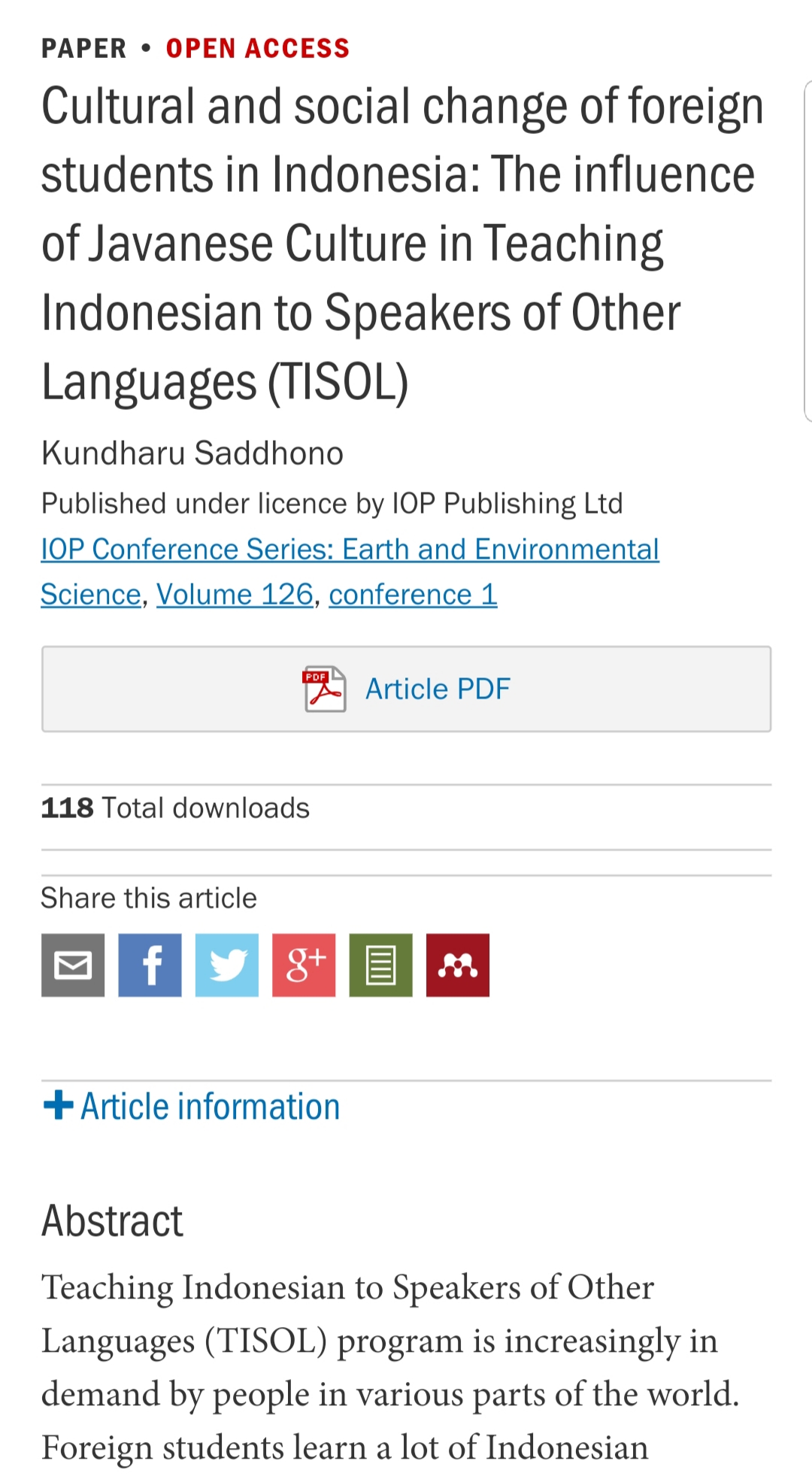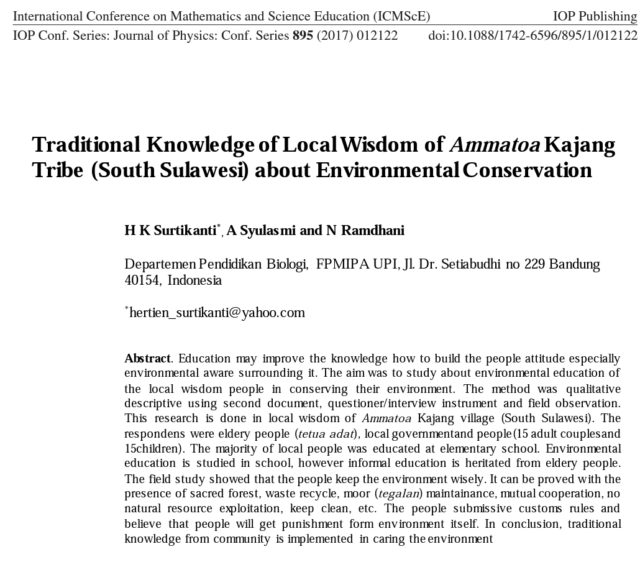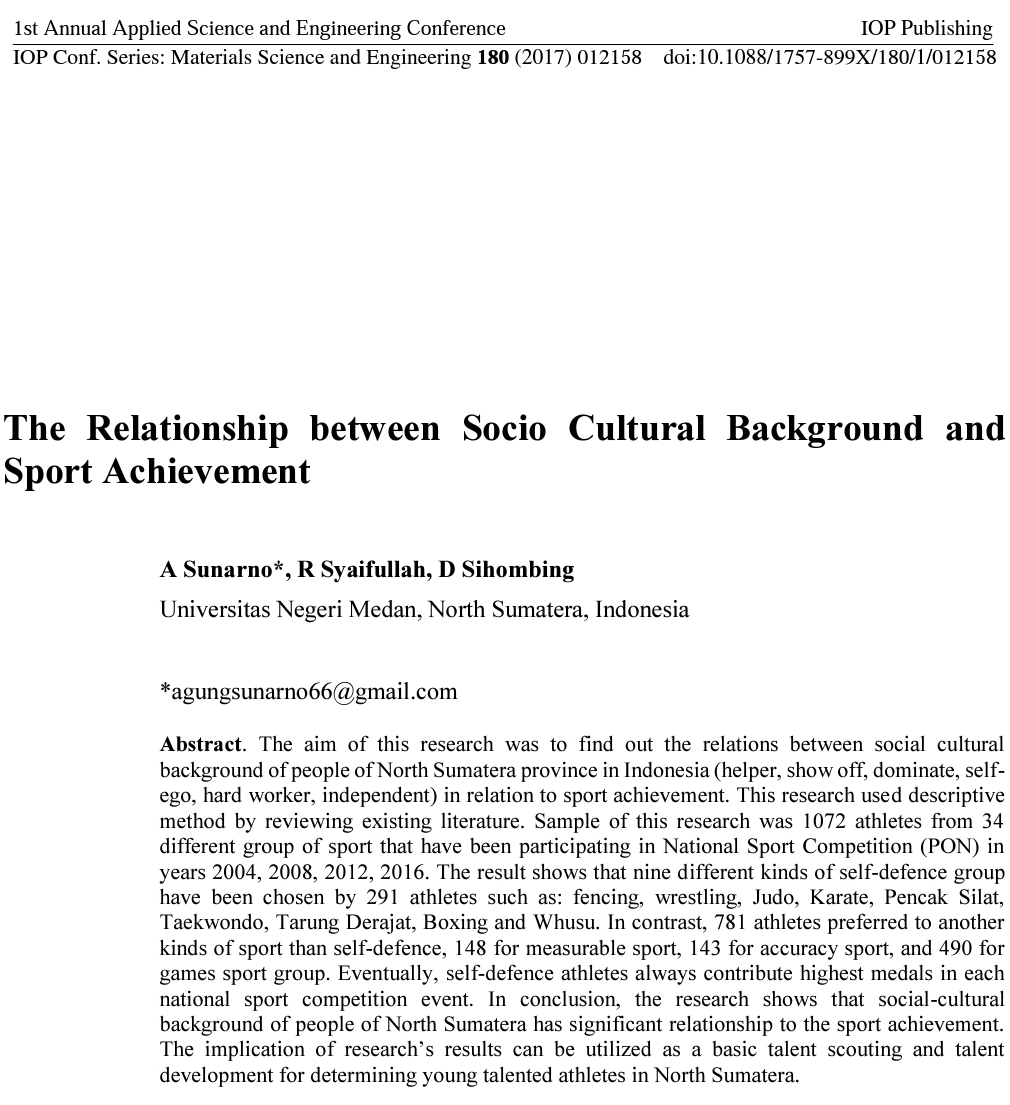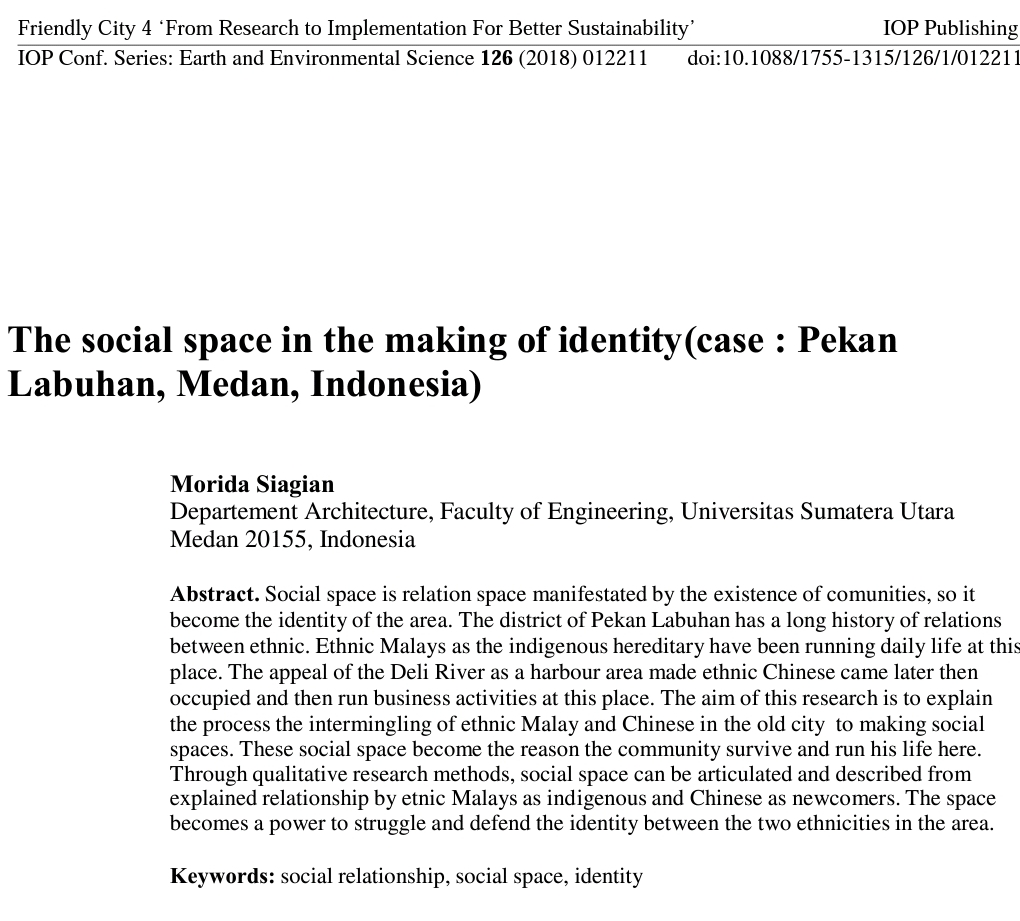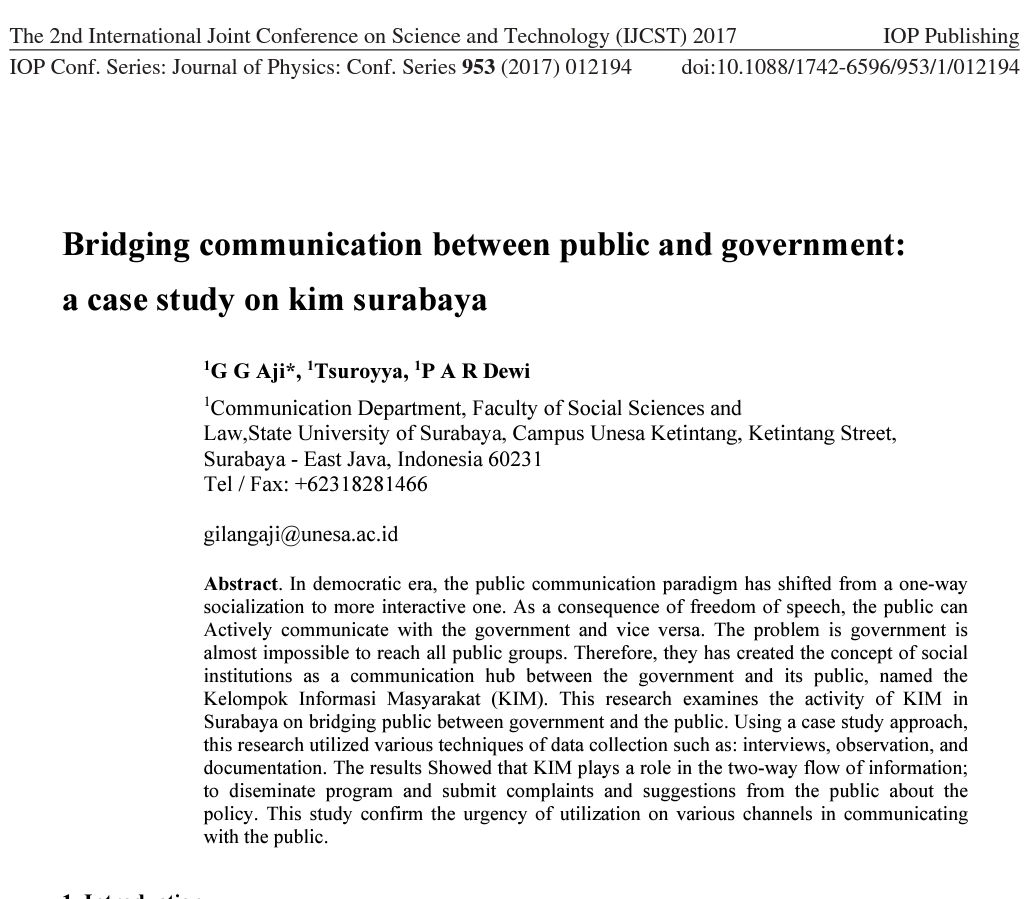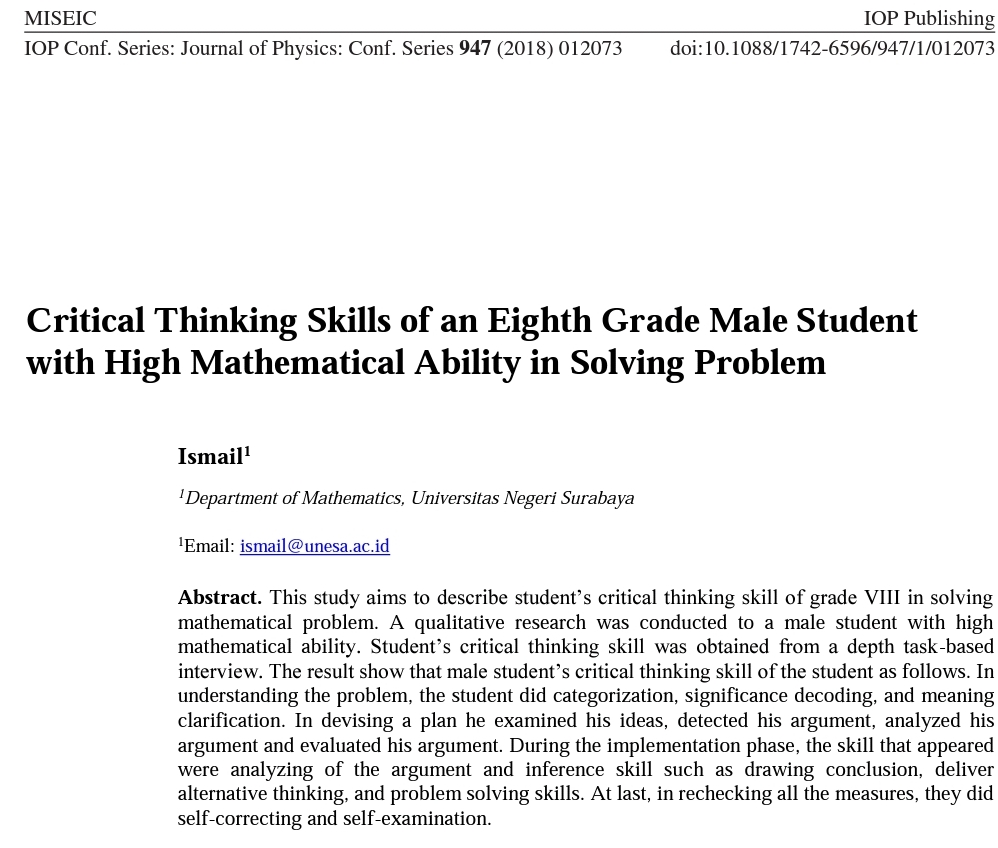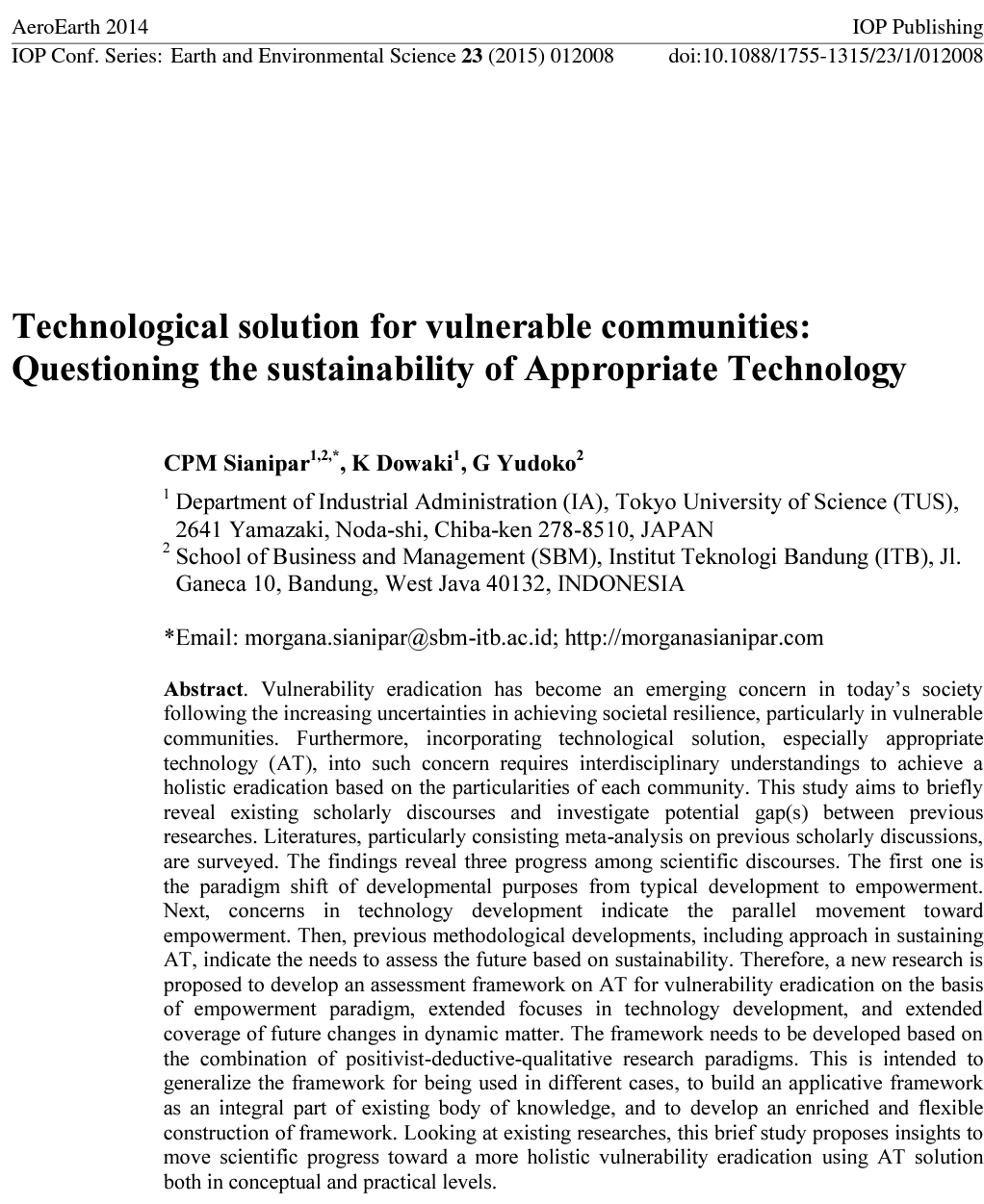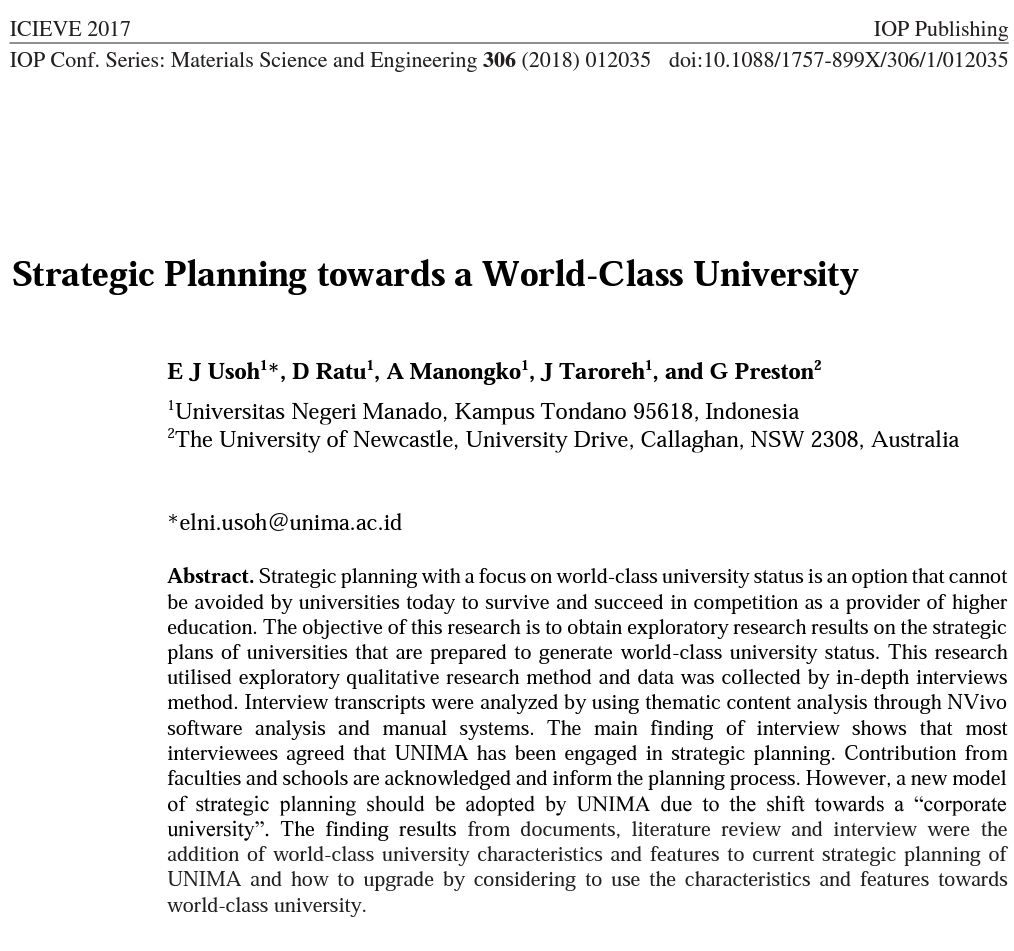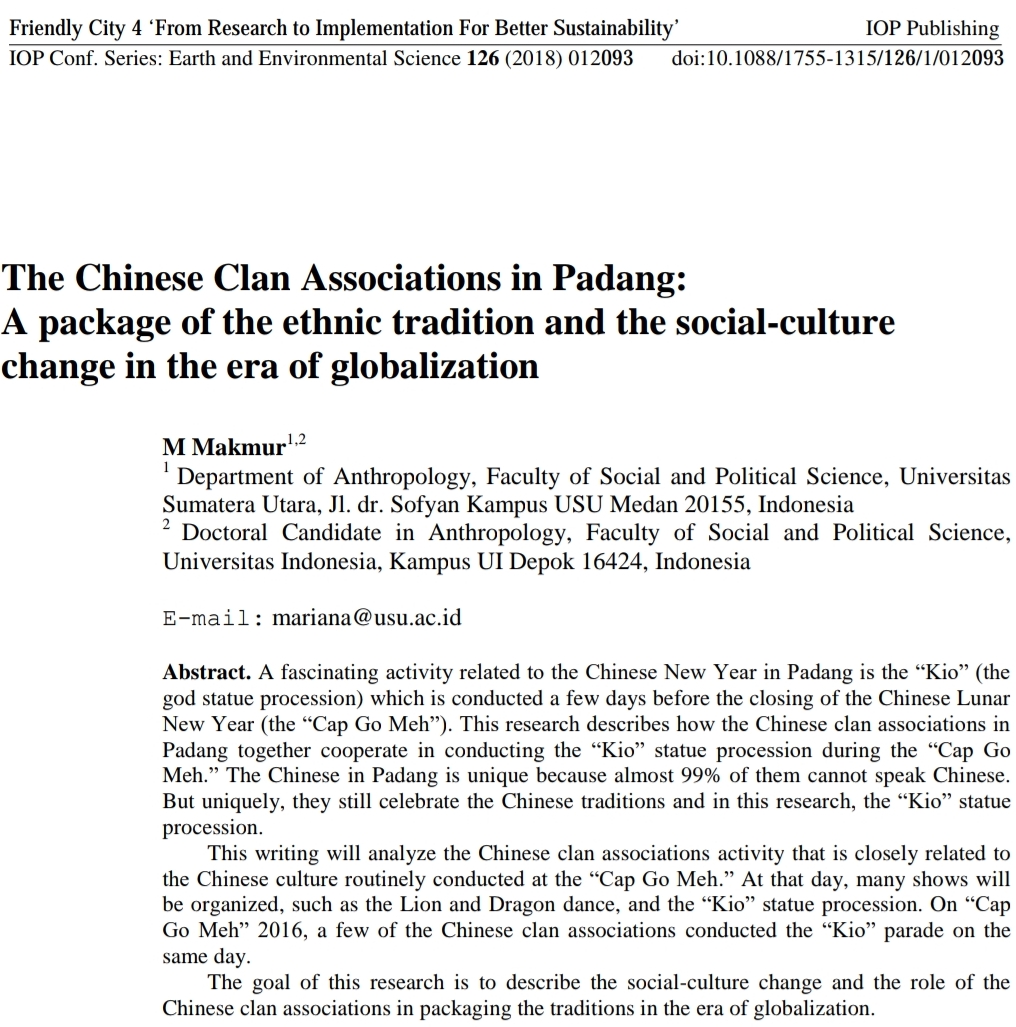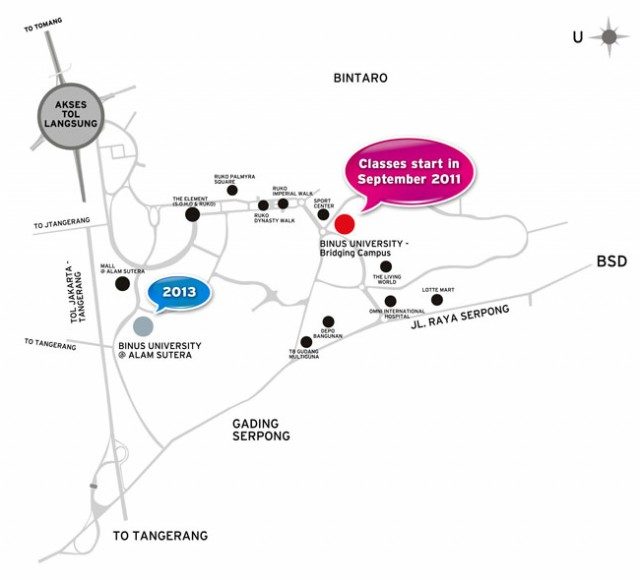International Conference of Psychotechnology (ICOP)
3rd International Conference of Psychotechnology (ICOP)
“Sustainable Innovation:
What, Why, and How?”
September 5 – 6, 2018
Venue: BINUS Alam Sutera, Indonesia
– ICOP 2018 Memories –
Background
ASEAN citizens with all the strength of the economic, social, and demographic will occupy an important position in the geopolitical world. Meanwhile, the millennial generation evolves into the largest population that would become the maestro in the digital world. Therefore, we need to contribute in rethinking Indonesia in this “new” world and finding as well as developing a uniquely ASEAN citizen’s innovative literacy program on human and humanities in a sustainable and wise manner.
This conference covers Sustainable Human Factors topic of interest consisting of, among others, Socially healthy, measurable, respectful to individuals, and ecologically as well as architecturally-friendly psychotechnology in the personal, interpersonal, and organizational contexts (ICOP).
We invite psychologists, academics and researchers from all fields and backgrounds to submit empirical research articles about psychology-driven innovation, basic psychological research with potential of becoming tangible application, and assessment method of the innovation implemented.
Psychotechnology is defined as (VandenBos, 2007):
1. The body of psychological facts and principals involved in the practical applications of psychology.
2. The application of such knowledge.
This definition is close to applied psychology (VandenBos, 2007), i.e.:
The application of the theories, principles, and techniques of psychology to practical concerns, such as political campaigns, consumer affairs, industry, ergonomics, education, advertising, vocational guidance, problems of living or coping, and environmental issues. It may be contrasted with theoretical psychology or academic psychology, in which the emphasis is on understanding for its own sake rather than the utility of the knowledge.
Coleman R. Griffith (1928) stated:
“It is difficult to think of human beings who simply are; we almost always think of them as for better or for worse, and this means either ethics or psychotechology”.
Psychotechnology is the amelioration of applied psychology (Gundlach, 1935). Psychologytechnology is a specialization in psychology which deals with the analysis and management of psychological reality and principles to accommodate needs and problem solving in our personal and professional daily life. Psychotechnology is a more advanced form of applied psychology in clinical, medical, social, educational, and organizational fields. It is expected–in certain facets–to produce tangible tools to improve human performance.
Updated News, 10 June 2019,
regarding ICOP 2018 Publication:
The article titles that has been published by the IOP on 7 June 2019, have been linked to the metadata.
See the Table below as well as the Preface.
Updated News, 27 April 2019,
regarding ICOP 2018 Publication:
In conjunction with The 1st International Conference on Advanced & Scientific Innovation (ICASI, 2018) conference parasol, all of the manuscripts that have been accepted after reviewed and presented in this ICOP conference will be published in the IOP Journal of Physics: Conference Series (Online ISSN: 1742-6596) – Volume 1175. IOP received the payment on 7 November 2018 (handled by Rivka Hanoman-Tucker, Billing Clerk at IOP Publishing, IOPP Invoice 8106827), and the IOP has been executing the publication production since 11 March 2019 (handled by Lizzy Raj of MPS Limited ; in which Institute of Physics/IOP Publishing is a client of MPS Limited in terms of publishing service). IOP Conference Series is indexed in Scopus and Web of Science/ISI Thomson Reuters/Clarivate Analytics (Conference Proceedings Citation Index). IOP JPCS is a Quartile 3 (SCOPUS Q3) ranked (SJR 2017 = 0.241) proceedings journal. It is an open access publication; all articles are free to read and download in perpetuity. Take a note that Rejection of the Published Titles is still possible during reviews by Scopus itself.
Note: Unsuccessful published titles/articles of ICOP in IOP JPCS Vol 1175 (based on the discretion of the Publisher) will further be published in SciTePress, after some template adjustment, also submitted for indexing in Scopus. The author does not need to pay any additional fee. It will be free of charge. Take a note that Rejection is still possible during reviews by SciTePress & Scopus based on their discretion. The examples of SciTePress Proceedings indexed in Scopus:
- ICEIS 2017 – Proceedings of the 19th International Conference on Enterprise Information Systems. Indexed in Scopus.
- Visigrapp 2018 – Proceedings of the 13th International Joint Conference on Computer Vision, Imaging and Computer Graphics Theory and Applications. Indexed in Scopus.
Papers Accepted for Publication in IOP JPCS Vol 1175
| Paper No | Name of Corresponding Author | Affiliation | Authors | Article Title |
| 3 | Ardhana Riswarie | Aesthetics & The Sciences of Art Research Group, Faculty of Visual Art and Design, Bandung Institute of Technology, Indonesia | Ardhana Riswarie, Irma Damajanti, Ira Adriati | Application of Housen’s Model of Aesthetic Development in Higher Education: An Exploration of Cognitive Aspects during Art Appreciation |
| 5 | Lim Sanny | Management Department, BINUS Business School Undergraduated Program, Bina Nusantara University, Indonesia | Lim Sanny, Kania Larasathy, Rachel Claudia, Beni Widarman bin Yus Kelana | The Customer Satisfaction of Online Transportation in Indonesia |
| 8 | Shahnaz Safitri | Faculty of Psychology, Universitas Indonesia, Indonesia | Jordan Brahmansyah, Shahnaz Safitri | The Use of Online Counselling Platform among Youth: The Interrelationship among Attitude, Self-Stigma, and Intentions Explained |
| 9 | Silvia Kristanti Tri Febriana | Universitas Lambung Mangkurat, Indonesia | Silvia Kristanti Tri Febriana, Fajrianthi | Cyber Incivility Perpetrator: The Influenced of Dissociative Anonimity, Invisibility, Asychronicity, and Dissociative Imagination |
| 10 | Muhamand Nanang Suprayogi | Department of Psychology Bina Nusantara University, Indonesia | Muhamad Nanang Suprayogi, Lisa Ratriana, AP Juni Wulandari | The interplay of academic efficacy and goal orientation toward academic achievement |
| 11 | Claudia Jaquelina González Trujillo | Universidad de Monterrey, Mexico | Claudia Jaquelina González Trujillo, Ernesto Octavio López Ramírez, María Elena Urdiales Ibarra | Cognitive chronometric assessment of constructive knowledge: an empirical approach to support formative assessment |
| 29 | Esther Widhi Andangsari | Psychology Department, Faculty of Humanities, Bina Nusantara University, Indonesia | Esther Widhi Andangsari, Achmad Djunaidi, Efi Fitriana, Diana Harding | Indonesia Problematic Internet Use Scale
|
Papers for Publication in SciTePress
| Paper No | Name of Corresponding Author | Affiliation | Authors | Article Title |
| 1 | Essensia Kasih | Faculty of Business and Economics, University of Indonesia, Indonesia | Essensia Kasih, Ayu Aprilianti | Understanding the Existence of Calling in Indonesian Millennials and Its Impact to Job Satisfaction |
| 2 | Andy Gunardi | Information System Department, Bina Nusantara University, Indonesia & PhD Student in Psychology, Atma Jaya Catholic University, Indonesia | Andy Gunardi | Altruistic Behavior: Comparation of Men and Women in Indonesia |
| 6 | Dian Anggraini Kusumajati | Character Building Development Center & Information System Department, Bina Nusantara University, Indonesia | Dian Anggraini Kusumajati | The Influence of Employee Satisfaction on Employees’ Creativity: A Case Study at Higher Education |
| 7 | Rahmanto Kusendi Pratomo | Psychology Department, Faculty of Humanities, Bina Nusantara University, Indonesia | Rahmanto Kusendi Pratomo, Wing Ispurwanto | The Influence of Work Environment Conditions towards Work Engagement at PT.MCD |
| 12 | Nayunda Andhika Sari | Universitas Indonesia, Indonesia | Amanda Fitri, Nayunda Andhika Sari, Ayu Aprilianti Lizar, Riani Rachmawati | Factors Influencing Decisions in the International Assignment: A Case from Indonesian Female Employees |
| 13 | Yosef Dedy Pradipto | Psychology Department, Faculty of Humanities, Bina Nusantara University, Indonesia | Y D Pradipto, W J Anggoro, J A A Rumeser, A Setyorini, I Rifai | The roles of authentic leadership, self efficacy, and employees’ silence on organizational commitment in BINUS University |
| 14 | Muhamand Nanang Suprayogi | Department of Psychology, Bina Nusantara University, Indonesia | Muhamand Nanang Suprayogi, Martin Valcke, Zulaikha Mohamed | Differentiated instruction in public and private schools in Indonesia |
| 15 | Nayunda Andhika Sari | Universitas Indonesia, Indonesia | Delly Mawarni Gumay, Nayunda Andhika Sari | Servant Leadership in Indonesia Asian Games 2018 Organizing Committee: Its Impact on Organizational Learning and Performance |
| 16 | Nurindah W Hastuti | Peace and Conflict Resolution Graduate Study Program, Indonesia Defense University, Indonesia | Nurindah W Hastuti, Eri R Hidayat, Bambang Wahyudi, Istiani | The effects of collective challenge, common purpose, social solidarity, and sustained interaction on participation in the 411-212 movements in Jakarta’s governor election |
| 17 | Dragos Iliescu | Department of Psychology, University of Bucharest, Romania | Dragos Iliescu | Evidence-Based Psychological Assessment |
| 18 | Afiania | Industrial and Organizational Psychology, Universitas Indonesia, Indonesia | Afiania, Corina D S Riantoputra | The Relationship between Conscientiousness and Perception on Ethical Leadership with Felt Accountability in Employee |
| 19 | Nayunda Andhika Sari | Universitas Indonesia, Indonesia | Mutia Salsabila Andini, Nayunda Andhika Sari, Ayu Aprilianti Lizar, Riani Rachmawati | Does International Assignment Matter? Indonesian Women’s Perception on Multi-National Companies’ Attractiveness |
| 20 | Evi Afifah Hurriyati | Psychology Department, Bina Nusantara University, Indonesia | Evi Afifah Hurriyati, Efi Fitriana, Surya Cahyadi, Wilis Srisayekti | Emotion and Memorizing Qur’an Ability: The Factors that Affect Verbal Working Capacity |
| 21 | Irene A Josephine | Industrial and Organizational Psychology, Universitas Indonesia, Indonesia | Irene A Josephine, Corina D S Riantoputra | The Relationship between Managerial Monitoring Behavior and Empowering Leadership Climate with Employees’ Felt Accountability |
| 22 | Raymond Godwin | Psychology Department, Faculty of Humanities, Bina Nusantara University, Indonesia | Arsyan Makarim Sugiri, Raymond Godwin | Description of the networked individualistic tendency level of young adults in Jabodetabek |
| 23 | Riryn Sani | Department of Psychology, Universitas Pelita Harapan, Indonesia | Riryn Sani, Yonathan Aditya, Ihan Martoyo, Rudy Pramono | Multidimensional religiousness among Christian and Muslim students: Are there gender differences in Indonesia? |
| 24 | Yosefine Aryani | Industrial and Organizational Psychology, Universitas Indonesia, Indonesia | Yosefine Aryani, Regina Candra Dewi, Corina D S Riantoputra | Prompt and Accurate Decision Making in an Organization: Roles of Felt Accountability and Perceived Resources on Intuitive Decision Making |
| 25 | Yudis S Prasasti | Industrial and Organizational Psychology, Universitas Indonesia, Indonesia | Yudis S Prasasti, Corina D S Riantoputra | Stealing Time? The Effect of Conscientiousness, Procedural Justice, and Felt Accountability on Attitude towards Time Theft |
| 26 | Rahmanto Kusendi Pratomo | Psychology Department, Faculty of Humanities, Bina Nusantara University, Indonesia | Rahmanto Kusendi Pratomo, Moondore Madalina Ali, Wing Ispurwanto, Baydhowi | The condition of traditional market and the impact to consumer satisfaction |
| 27 | Pingkan C B Rumondor | Psychology Department, Faculty of Humanities, Bina Nusantara University, Indonesia | Pingkan C B Rumondor, Rahmanto K Pratomo, Gretta V Paramita | The Role of Family Supportive Supervisor Behaviour, Dyadic Coping, and Work-Family Conflict in predicting Marital Satisfaction of Financial Services Employee in Jakarta |
| 28 | Rani Agias Fitri | Psychology Department, Faculty of Humanities, Bina Nusantara University, Indonesia | Rani Agias Fitri, Lounafarsha Wielyanida | The Correlation between Personality Trait and Social Curiosity |
Fixed rundown
Keynote Address will be delivered on 5 September at 8a.m.-1p.m. at BINUS Alam Sutera, AUDITORIUM, Room B0501 (Capacity: 281 persons).
Presentation Rooms will be in Building C Floor 3 (C0304 & C0305) on 5-6 September 2018; as the following table (Check Moderator Responsibilities here):
Dinner will be held on 5 September 2018, at 7p.m., Room B0503-B0504. (Note: Dinner is cancelled)
| Day, time | C0304 Parallel Room 1 | C0305 Parallel Room 2 |
| 5 September 2018 13:30-15:00 | Industrial & Organizational Context – 1
Moderator: Corina D. S. Riantoputra, PhD. Minutes: Yosef Dedy Pradipto
Presentation The Relationship among Managerial Monitoring Behavior and Empowering Leadership Climate with Employees’ Felt Accountability (Universitas Indonesia) Irene Aprilia Josephine, Corina D. S. Riantoputra
The roles of authentic leadership, self efficacy, and employees’ silence on organizational commitment in BINUS University (Bina Nusantara University, Gajah Mada University, Yogyakarta, & The Ohio State University, USA) Yosef Dedy Pradipto, Wahyu Jati Anggoro, Johannes AA Rumeser, Ari Setyorini, I Rifai
Servant Leadership in Indonesia Asian Games 2018 Organizing Committee: Its Impact on Organizational Learning and Performance (Universitas Indonesia) Delly Mawarni Gumay, Nayunda Andhika Sari |
Cognitive Aspects
Moderator: Dr. Claudia Jaquelina González Trujillo Minutes: Evi Afifah Hurriyati
Presentation Cognitive chronometric assessment of constructive knowledge: An empirical approach to support formative assessment (Universidad de Monterrey. Av. Morones Prieto, México & Universidad Autónoma de Nuevo León. Dr. Carlos Canseco, México) Claudia Jaquelina González Trujillo, Ernesto Octavio López Ramírez, María Elena Urdiales Ibarra
Application of Housen’s Model of Aesthetic Development in Higher Education: An Exploration of Cognitive Aspects during Art Appreciation (Bandung Institute of Technology) Ardhana Riswarie, Irma Damajanti, Ira Adriati
Prompt and Accurate Decision Making in an Organization: Roles of Felt Accountability and Perceived Resources towards Intuitive Decision Making (Universitas Indonesia) Yosefine Aryani, Corina D. Riantoputra |
| 5 September 2018 15:30-17:00 | Online Behavior
Moderator: Silvia Kristanti Tri Febriana, M.Psi. Minutes: Rani Agias Fitri
Presentation Cyber Incivility Perpetrator: The Influenced of Dissociative Anonimity, Invisibility, Asychronicity, and Dissociative Imagination (Universitas Lambung Mangkurat, Banjarmasin & Universitas Airlangga, Surabaya) Silvia Kristanti Tri Febriana, Fajrianthi
The Use of Online Counselling Platform among Youth: The Interrelationship among Attitude, Self-Stigma, and Intentions Explained (Universitas Indonesia) Jordan Brahmansyah , Shahnaz Safitri
The Customer Satisfaction of Online Transportation in Indonesia (BINUS Business School, Universiti Utara Malaysia) Lim Sanny, Kania Larasathy, Rachel Claudia, Beni widarman bin yus kelana |
Industrial & Organizational Context – 2
Moderator: Essensia Kasih Minutes: Dian Anggraini Kusumajati
Presentation Understanding the Existence of Calling in Indonesian Millennials and Its Impact to Job Satisfaction (Universitas Indonesia) Essensia Kasih, Ayu Aprilianti
The condition of traditional market and the impact to consumer behavior (Bina Nusantara University) Rahmanto Kusendi Pratomo, Moondore Madalina Ali, Wing Ispurwanto, Baydhowi
The Influence of Employee Satisfaction towards Employees’ Creativity: A Case Study at Higher Education (Bina Nusantara University) Dian Anggraini Kusumajati
|
| 6 September 2018 08:30-10:00 | Educational Context
Moderator: Ferry Doringin (cancelled his participation) Minutes: Muhamad Nanang Suprayogi
Presentation The new role of HRM for the quality improvement of private schools in Indonesia (Bina Nusantara University) Ferry Doringin (cancelled his participation)
The interplay of academic efficacy, goal orientation, to the academic achievement (Bina Nusantara University) Muhamad Nanang Suprayogi, Lisa Ratriana, AP Juni Wulandari
Differentiated instruction in public and private schools in Indonesia (Bina Nusantara University, Gent University) Muhamad Nanang Suprayogi, Martin Valcke, Zulaikha Mohamed
|
Gender Dimension
Moderator: Nayunda Andhika Sari Minutes: Esther Widhi Andangsari
Presentation Does International Assignment Matter?: Indonesian Women’s Perception on Multi-National Companies’ Attractiveness (Universitas Indonesia) Mutia Salsabila, Nayunda Andhika Sari, Ayu Aprilianti, Riani Rachmawati
Altruistic Behavior: Comparison of Men and Women in Indonesia (Bina Nusantara University) Andy Gunardi
Multidimensional religiousness among Christian and Muslim students: Are there gender differences in Indonesia? (Universitas Pelita Harapan, Tangerang & Reformed Theological Seminary Indonesia (STTRI), Jakarta, Indonesia) Riryn Sani, Yonathan Aditya, Ihan Martoyo, Rudy Pramono
Factors Influencing Decisions in International Assignment: A Case of Indonesian Female Employees (Universitas Indonesia) Amanda Fitri, Nayunda Andhika Sari, Ayu Aprilianti, Riani Rachmawati |
| 6 September 2018 10:30-12:00 | Family and Developmental Issues
Moderator: Pingkan C B Rumondor, M.Psi. Minutes: Raymond Godwin
Presentation The Role of Family Supportive Supervisor Behaviour, Dyadic Coping, and Work-Family Conflict in predicting Marital Satisfaction of Financial Services Employee in Jakarta (Bina Nusantara University) Pingkan C B Rumondor, Rahmanto K Pratomo, Gretta Vidya Paramita
Indonesia Problematic Internet Use Scale (Bina Nusantara University) Esther Widhi Andangsari, Achmad Djunaidi, Efi Fitriana, Diana Harding
Description of the networked individualistic tendency level of young adults in Jabodetabek (Bina Nusantara University) Arsyan Makarim Sugiri, Raymond Godwin
Stealing Time? The Effect of Conscientiousness, Procedural Justice and Felt Accountability to the Attitude towards Time Theft (Universitas Indonesia) Yudis S. Prasasti, Corina D.Riantoputra
|
Social Aspects
Moderator: Nurindah W Hastuti Minutes: Istiani
Presentation The Effects of Collective Challenge, Common Purpose, Social Solidarity, and Sustained Interaction on Participation in the 411-212 Movements in Jakarta’s Governor Election (Indonesia Defense University, Bina Nusantara University) Nurindah W Hastuti, Eri R Hidayat, Bambang Wahyudi, Istiani
The Relationship between Conscientiousness and Perception on Ethical Leadership with Felt Accountability in Employee Afiania, Corina D S Riantoputra (Universitas Indonesia)
The Correlation between Personality Trait and Social Curiosity (Bina Nusantara University) Rani Agias Fitri, Louna Farsha Wielyanida
The Influence of Working Environment Conditions towards Work Attachment at PT.MCD (Bina Nusantara University) Rahmanto Kusendi Pratomo, Wing Ispurwanto |
Recommendation for Hotel
Keynote Speaker
Prof. Gary P. Latham
Former President of the Canadian Psychological Association (CPA), the Society for Industrial-Organizational Psychology (SIOP) / University of Toronto, Canada
Gary P. Latham is the Secretary of State Professor of Organizational Effectiveness at the Rotman School of Management, University of Toronto. From 1983-1990, he was the Ford Motor Research Professor, Business School at the University of Washington. He is widely viewed as one of the world’s leading experts in the field of organizational behavior and goal setting theory. His contributions to organizational behavior have changed the field, both theoretically and empirically. His work on goal-setting has made fundamental contributions to both the area of motivation and self-regulation and makes him a household name to students and scholars in organizational behavior. In fact, if you are familiar with research on goals, you have heard people cite his name, perhaps in association with Edwin Locke, hundreds of times. You may remember their landmark article based on decades of their own and other’s research on goals in the American Psychologist: Building a practically useful theory of goal setting and task motivation: A 35-year odyssey.
KEYNOTE LECTURE: The Effects of Conscious and Subconscious Goals on Employee Productivity and Satisfaction with Customer Service
Goal setting theory provides a theoretical framework for increasing the productivity of employees and teams. The theory was developed from over 1000 studies. I will discuss when to set performance goals, learning goals, versus behavioral goals. I will then discuss emerging evidence showing the additive effect on employee and team performance of priming goals in a person’s and a team’s subconscious. I will conclude my presentation by showing how a CEO increased the productivity of the workforce through the use of achievement related words in his Monday morning email to them. (Gary Latham)
Prof. Dragoş Iliescu *
President of International Test Commission/University of Bucharest, Romania
* cancelled, due to unforeseen circumstances
Dragoş Iliescu is a Professor of Psychology with the University of Bucharest. Beside his academic career, he has been active as a consultant for the past 20 years, being involved in and having led important projects related to tests, testing and assessment (among them more than 100 test adaptation projects), mainly in East Europe, but also in Asia, Africa, and South America. His research interests group around two domains: applied psychology in the occupational and human resources area, and psychological assessment, tests and testing (with an important cross-cultural twist). Drago? Iliescu has served in various capacities for a number of national and international professional associations; he is the current President (2016-2018) of the International Test Commission (ITC). He is an Associate Editor for the European Journal of Psychological Assessment, and the author of over 100 scientific papers, book chapters and books, among them the co-Editor of the acclaimed ITC International Handbook of Testing and Assessment, published in 2016 by Oxford University Press, and the author of an important monography (Adapting tests in lingvistic and cultural situations) published with Cambridge University Press.
KEYNOTE LECTURE: Evidence-based Psychological Assessment
Testing and assessment is possibly the single most influential contribution of psychology to the repertoire of scientific methods.
But testing and assessment has evolved in meandering and not always straightforward ways during the past 100 years, combining today a number of extremely modern approaches, but being also tributary to historical artefacts that cannot be considered up to par with scientific requirements.
In the same way in which we promote today an evidential basis in those areas of psychology that are dedicated to interventions (e.g., evidence-based psychotherapeutical interventions, evidence-based management), we should promote an evidential basis in psychological testing and assessment.
This lecture will concentrate on the definition of evidence-based assessment, will discuss the different ways in which evidence-based assessment may be approached in clinical, educational and work psychology, and will finally focus on a number of utility analyses related to evidence-based psychological assessment, as opposed to more traditional methods of assessment that do not always have an empirical basis. (Dragoş Iliescu)
Prof. Martin Valcke*
Universiteit Gent
* cancelled, due to unforeseen circumstances
Dr. Martin Valcke is full professor in the field of ‘Instructional Sciences’ at the Ghent University, Belgium and head of the Department of Educational Studies in the Faculty of Psychology and Educational Sciences. He has been and is being involved in a large number of national and international research and consultancy projects in countries of Africa (Uganda, Mozambique, South Africa, Zimbabwe), Middle America (Ecuador, Peru), and Asia (Cambodia, China, Vietnam). Next, he is regularly involved in activities and projects of the World Bank, the European Commission (Flexible Universities, Multi-Media programme, TEMPUS, Socrates, IST, FP7, …), and other international organisations. Next to his teaching and research activities at the Ghent University, he was an active member of the WTR (the Scientific Technical Council) of SURF (Dutch higher education and research partnership organisation for network services and information and communications technology WWW.SURF.NL ).
Scientific Reviewer
- Dr. Juneman Abraham (Bina Nusantara University, Indonesia)
- Prof. Dragos Iliescu (The International Test Commission/University of Bucharest, Romania)
- Dr. Ayleen Wisudha (University of Westminster, UK)
Topic
Topics of interest include, but are not limited to:
- Proposition and Theorem of Psychotechnology
- Application of Information Technology Advancement in Psychology
- Application of Psychology in the Refinement of Information Technology
- Psychological Instrument Across Culture
- Role of Social Network in People-Organization Interactions
- Applications of Priming Techniques
- Human Capital Improvement through Standardized Training Course
- Applications of Body Language Analysis
- Development of Hypnotherapy, Mindfulness, and Psychotherapy
- Other Psychotechnological Innovations
Important Dates
- Deadline for full paper submission: June 15, 2018 (Ultimate Extended: July 30, 2018. No extension after this date)
- Notification of acceptance of the full paper: August 20, 2018
- Deadline for final draft for publication: August 25, 2018
- Deadline for Payment: August 31, 2018
- Deadline for Early Bird Payment: July 30, 2018
- Conference days: September 5–6, 2018
Submission (Max. 6 pages, including References, in English)
- Download Author Guidelines for Conference Proceedings. Note: Authors must follow Author Guidelines strictly; failing which the manuscripts would be rejected without review.
- Full paper should be submitted via email: juneman@binus.ac.id
- You may use IOP Editing Services (https://editing.iopscience.iop.org/), at your own cost, to ensure that your work is written in correct scientific English & IOP format before submission. However, use of this service is not mandatory for publication in the ICOP Publication (IOP Journal of Physics: Conference Series) and does not guarantee acceptance.
- The final articles shall be sent in Word format, and titled following the pattern: surname_name_icop2018.docx
Registration (Refer to this link for Payment)
* If you have problem with registration and payment, please contact: Research & Technology Transfer Office (Karlina.situmorang@binus.edu or +6221-53696969 ext.1708
The authors receive and oblige to the terms and conditions of the conference upon the payment is settled. The committee will announce the update officially on the website and the registrants must follow the terms and conditions as stipulated.
| No. | International Participant | Fee (full amount) |
| 1. | Presenter registration | USD 300 |
| 2. | Non-student participant | USD 100 |
| 3. | Workshop participant (Psychological Test Adaptation: Application in Research and Clinical Settings with Prof. Dragoş Iliescu) | Cancelled |
| No. | Indonesian Participant | Fee (full amount) |
| 1. | Presenter registration | IDR 3,500,000 |
| 2. | Early bird (until 30 July 2018) | IDR 3,000,000 |
| 3. | Participant | IDR 1,000,000 |
| 4. | BINUSIAN Student Participant and BINUS Associate Faculty Member | FREE |
| 5. | Industry Partner Executive Session (with Prof. Gary P. Latham) | IDR 2,500,000 |
The fee includes conference program kits, meal during the conference, and certificate.
Traveling and accommodation fees are excluded.
In order for you to make online registration, you are requested to pay the above conference fee through following link:
http://research.binus.ac.id/conference/registration/icop/
About ICOP
ICOP will be held in conjunction with ICSSLAH – International Conference on Social Sciences, Law, Art and Humanities, one of our BINUS Joint International Conferences. The ICSSLAH is hosted by Faculty of Humanities, BINUS University. The ICSSLAH 2018 consists of five conferences based on disciplines ranging from psychology (ICOP), law, international relations, art, humanities, social sciences, primary teacher education, to culture and languages. ICSSLAH is a part of BINUS JOINT INTERNATIONAL CONFERENCE (BJIC).
As mentioned by Quacquarelli Symonds, BINUS University is a private institution with over 30,000 students, active industry links with 5,000 companies and partnerships with 130 universities abroad. With an overall rating of three QS stars, BINUS achieved the maximum five stars rating in the categories of inclusiveness, teaching, employability and social responsibility and ranks among the top 251 universities in Asia in the QS University Rankings: Asia 2018. BINUS University obtained an ‘A’ accreditation from the National Accreditation Board of Higher Education (BAN-PT) on 28th December 2016 as well as succeeded in obtaining the ‘A’ accredited status for Psychology Department on December 2017. Check our industry partners here: https://io.binus.ac.id/2017/02/20/industry-partners/ & https://global.binus.ac.id/collaboration-center/.
Presentation Rooms: Building C Floor 3 BINUS Alam Sutera (C0304 & C0305)
* The path is easier through the escalator from BCA below. If through an elevator, you will enter building A, so you need to walk to get to building C.
Jalurnya lebih mudah melalui eskalator dari BCA bawah. Jika lewat Lift maka akan masuk ke gedung A sehingga perlu berjalan untuk sampai ke gedung C.
PublicatioConfirmed publication indexed in:

Industry Meeting: cancelled. Will be held in June 2019.
INDUSTRY MEETING: Three Steps to Increasing the Productivity of Your Employees
The application of three psychological concepts, based on over a 1000 studies, will increase the productivity of employees. The first is goal setting. Goals instill meaning in otherwise tedious tasks. They give people a sense of purpose. Their attainment gives people feelings of accomplishment and personal effectiveness. In my discussion, I will discuss different types of goals and when each of them should be used.
Even when goals are specific and challenging, people may not choose to improve their productivity. Thus, a second psychological concept key to productivity improvement is outcome expectancy. That is, employees must see the relationship between pursuing goal attainment and the positive outcomes they can expect. If employers understand the outcomes that employees expect from pursuing the goal, they will understand why employees say what they say, and why they do what they do. If employers change the negative outcomes employees expect from goal pursuit, they will gain goal commitment.
Even when employee outcome expectancies are positive, employees may not commit to the attainment of one or more challenging goals because they lack the confidence that they have the ability to attain them. Thus, I will discuss ways to increase an employee’s self efficacy. Self efficacy is the third psychological concept that is key to productivity improvement. It is an employee’s belief/conviction that “yes, I can” rather than “no, I can’t. (Gary Latham)
Workshop: cancelled
WORKSHOP TITLE: Psychological Test Adaptation: Application in Research and Clinical Settings
This 1-day workshop serves as an introduction to the latest standards in testing and assessment, from a research perspective of test adaptation methods. It thus serves a two-fold purpose.The first part introduces participants to conceptual and statistical methods for translating and adapting tests from one language to another. It uses practical examples of adaptations conducted in non-English speaking countries to exemplify the application of the ITC Guidelines on Adapting Tests, and the 2014 Standards for Educational and Psychological Testing (APA, AERA, NCME, 2014). This first part will attract participants who use tests in research and applied settings, and are interested in developing their own tools or thoroughly evaluating existing Arabic tools.The second part introduces participants to best-practice guidelines in testing and assessment, discussing how culturally adequate testing portfolios or repertoires may be constructed in countries where test development is still emerging. Interested participants include all professionals who use tests (ranging from rating scales, to cognitive and personality tests) in public or private settings.
The goals of this workshop are twofold. First, we aim to equip attendees with the technical knowledge and basic skills needed for adapting tests into Indonesia. Second, we aim to empower attendees to think strategically at the manner in which psychological assessment is conducted and the manner in which it may be improved on the short-term with even minute efforts, through such approaches as the proper combiations of adequate psychological instruments, training for competent test users and publicity towards informed clients.
The workshop is intended to take 8 hours, in 4 2-hours sessions (2 sessions, i.e. 4 hours, before lunch, and the same after lunch).
No pre-workshop preparation is required. The workshop will be conducted in a face-to-face manner and provided materials and expected interactions will be paper-and-pencil. (Dragoş Iliescu)
Committee
Steering Committee
Dr. Johannes A. A. Rumeser, M.Psi.
Dra. Corina D. S. Riantoputra, M.Com., Ph.D.
Prof. Tirta Nugraha Mursitama, Ph.D.
Dr. Lili Yulyadi
Moondore Madalina Ali, Ph.D.
Dr. Yosef Dedy Pradipto, M.Si.
Muhammad Nanang Suprayogi, Ph.D.
Dr. Istiani Chandra, M.Psi.
Raymond Godwin, S.Psi., M.Si.
Organizing Committee:
Chair:
Dr. Juneman Abraham
Secretary:
Esther Widhi Andangsari, M.Psi.
Antonina Pantja Juni Wulandari, S.Sos., M.Si
Treasurer, Logistic, Equipments:
Dra. Lisa Ratriana Chairiyati, M.Si.
Carla Adi Pramono, M.Psi.
Yan Andre Peranginangin, M.Psi.
Scientific Presentation Sessions & Book of Programs:
Angela Dyah Ari Pramastyaningtyas, Ph.D.
Rani Agias Fitri, M.Si.
Aryo E. Nugroho, S.Psi., M.Sc.
Nangoi Priscilla Francis, M.Psi.
Rahmanto Kusendi Pratomo, M.Psi.
Pingkan C. B. Rumondor, M.Psi.
Baydhowi, M.Si.
Photo Documentation:
Drs. Wing Ispurwanto, M.B.A., M.Psi.
Carolus Suharyanto, M.Si.
Liaison Officer:
Anggita Dian Cahyani, M.A.
Katarina Ira Puspita, M.Psi.
Greta Vidya Paramita, M.Psi.
Relationship, Marketing, & Knowledge Management:
Budi Sulaeman, M.Psi.
Febriani Priskilla, M.Psi.
Andrea Prita Purnama Ratri, S.Psi.
Supported by:
- Nationwide University Network in Indonesia (NUNI, www.nuni.mobi)
- Asosiasi Penyelenggara Perguruan Tinggi Psikologi Indonesia – Chapter of Grater Jakarta (AP2TPI, www.ap2tpi.or.id)
Contact
Psychology Department, Faculty of Humanities
Bina Nusantara University
BINUS Kampus Kijang
Jalan Kemanggisan Ilir III no. 45
Palmerah
DKI Jakarta 11480
Indonesia
Tel.: +62-21-5345830 ext. 2632
Previous titles related to humanities and social sciences published by IOP Publishing:
Venue Check (for internal)
X-Banner: https://drive.google.com/open?id=1PmcO02–BwjqiKNqtE0FTG71wwojjlOT
ICSSLAH Rundown
Rundown Acara Konferensi Internasional ICSSLAH 2018
5 – 6 September 2018, Bina Nusantara Alam Sutra
| Date | Time | Event |
|
Wednesday, 5 September 2018 |
08.00 – 09.00 | Registrasi |
| 09.05 – 09.10 | Doa pembuka | |
| 09.10 – 09.20 | Lagu Indonesia Raya, Hymne BINUSIAN | |
| 09.20 – 09.25 | Sambutan Ketua ICSSLAH | |
| 09.25 – 09.30 | Sambutan Dekan Humaniora | |
| 09.30 – 09.40 | Sambutan dan Pembukaan ICSSLAH oleh VC. Rector Research | |
| 09.40 – 09.55 | Welcoming dance | |
| 09.55 – 10.10 | Coffee Break | |
| 10.10 – 12.10 | Keynote speaker ICSSLAH | |
| 12.10 – 13.30 | ISHOMA | |
| 13.30 – 14.30 | Keynotes masing-masing subconference | |
| 14.30 – 16.00 | Parallel panel I (ICOBIRD, ICOP, IC2L2C, ICELA, LoF2oL) | |
| 16.00 – 16.15 | Coffee break | |
| 16.15 – 18.00 | Parallel panel II (ICOBIRD, ICOP, IC2L2C, ICELA, LoF2oL) | |
|
Thursday, 6 September 2018 |
09.00 – 10.30 | Parallel panel III (ICOBIRD, ICOP, IC2L2C, ICELA, LoF2oL) |
| 10.30 -10.45 | Coffee break | |
| 10.45 -12.15 | Parallel panel IV (ICOBIRD, ICOP, &IC2L2C) | |
| 12.15 – 13.30 | ISOMA | |
| 13.30 – 15.00 | Workshop I dan Parallel session (PIC IC2L2C) | |
| 15.00 – 15.30 | Coffee Break | |
| 15.30 – 16.30 | Workshop II | |
| 16.30 – 17.00 | Evaluasi masing-masing PIC |
Student Committee
Binus.Budi Sulaeman: update mahasiswa psikologi panitia untuk acara
1. Assya Adijanti M – 2101670955
2. annisa 2101655430
3. Dwi rifka ikhsania – 2101679222
4. Riska Maharani Firdausa – 2101712610
5. viola krismia dheasiti – 2101671125
6. Andi Indira Meitasari Insan- 2101682646
7. Alya Fadia Soeriaatmadja – 2101647870
8. Maharani Dyah Ayu Paramitha – 2101694961
9. Nico Wilian Nathanael – 2101662695
10. Rizki Annisa Sabrina- 2101701052
11. Rizqiyah Widyaningrum -2101630794
12. Raden Ayu Syafna Ainunna 2101722813
13. Ami Nur Aulia Rahmani – 2101716741
14. Sabrina Permatasari – 2101649062
15. Angelica Putri Leoni – 2101629760
16. Cherryl Natasha – 2101684815
17. Michelle Adi Nugraha – 2101658861
18. Matthew derryl sugiono – 2101665425
Binus.Budi Sulaeman: update pemetaan jobdesk
NAMA DAN TUGAS:
1. Ami – meja regis (C0305)
2. Rizky Annisa- runner (menuju ruangan conference)
3. viola – meja regis (C0305)
4. Assya – meja regis
5. Riris – meja regis
6 Syafna – penerima tamu dalam kelas
7. Nico – Fotografi
8.annisa – runner
9. Riska – penerima tamu dalam kelas
10. Maharani dyah ayu – penerima tamu
11. Angel – runner
12. andi indira – fotografi
13. Alya – LO
14. Sabrina – Penerima tamu
15. rifka – LO
16. michelle – pendamping pembicara
17. cherryl – pendamping pembicara
18. matthew – LO
| Tanggal | Acara | Jam | Peralatan | Jumlah | Satuan | Lokasi | PIC |
| 5-Sep-18 | Coffee Break | 07.30 – 09.00 | Colokan lobang 4 (meja akan disediakan rasela) | 1 | buah | Sebelah Auditorium | ME |
| Pembukaan | 08.00 – 12.00 | Meja + taplak penerima tamu | 5 | buah | Auditorium | BM | |
| Kursi penerima tamu | 10 | buah | BM | ||||
| Colokan lobang 4 | 3 | buah | ME | ||||
| Podium | 1 | buah | BM | ||||
| Mic Wireless | 3 | buah | ME | ||||
| Mic + Dudukan di podium | 1 | buah | ME | ||||
| Dekorasi (pot bunga) | BM | ||||||
| ISHOMA | 12.00 – 13.30 | Kursi Kelas (meja akan disediakan rasela) | 30 | buah | B0503 + B0504 | Panitia | |
| Paralel Session | 13.30 – 18.00 | Ada Coffee Break, akan dipasang 3 spot (lantai 3, lantai 6, lantai 7) | A0601, A0603, A0608, A0701, A0704, A0705, A0707, A0708, C0301, C0302, C0303, C0304, C0305, C0306, C0307 | Panitia | |||
| Dinner | 18.00 – 20.00 | Kursi Kelas (meja akan disediakan rasela) | 30 | buah | B0503 + B0504 | Panitia | |
| 6-Sep-18 | Paralel Session | 09.00 – 12.00 | Ada Coffee Break, akan dipasang 3 spot (lantai 3, lantai 6, lantai 7) | A0601, A0603, A0608, A0701, A0704, A0705, A0707, A0708, C0301, C0302, C0303, C0304, C0305, C0306, C0307 | Panitia | ||
| ISHOMA | 12.00 – 13.30 | Kursi Kelas (meja akan disediakan rasela) | 30 | buah | B0503 + B0504 | Panitia |


